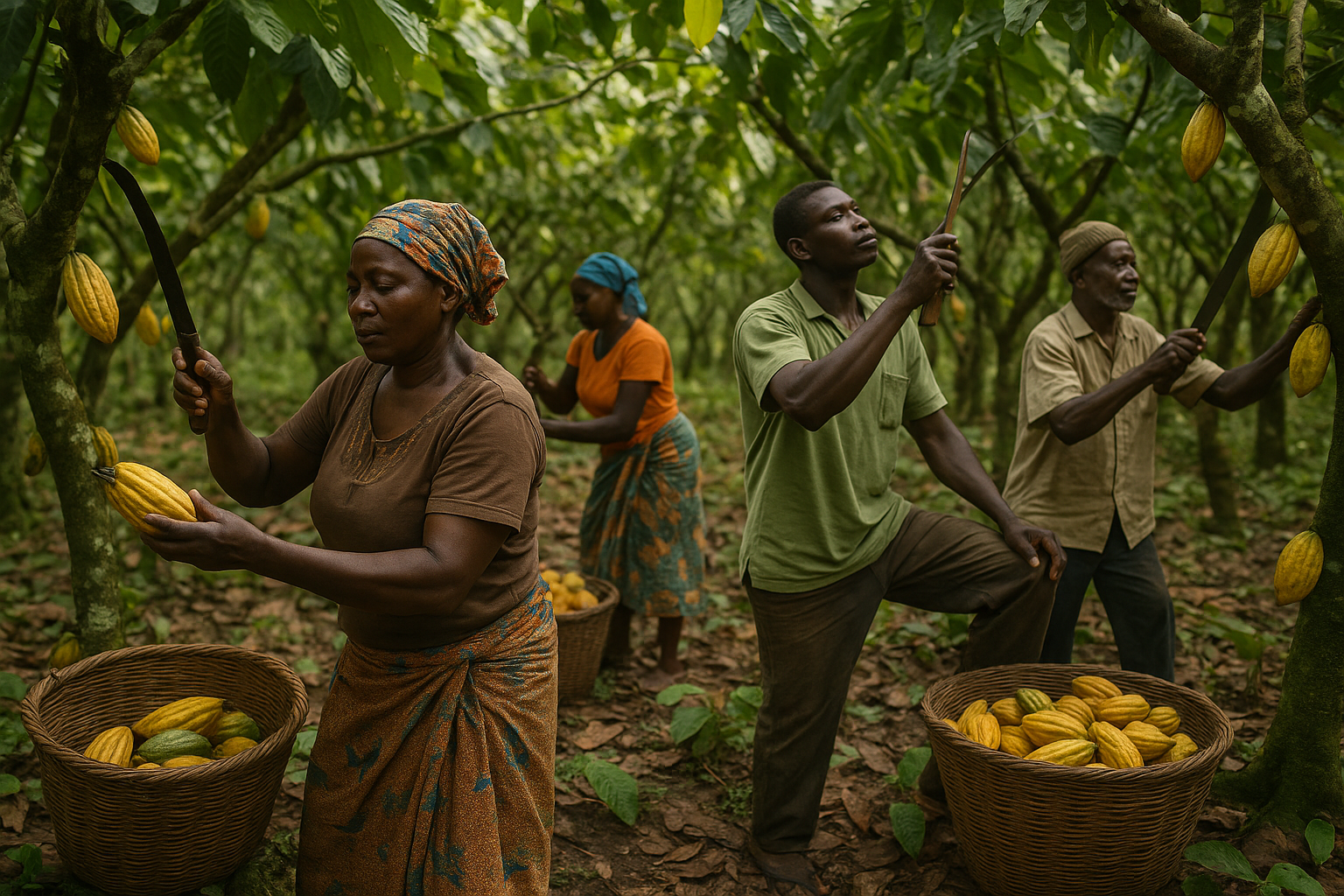IFAD Vice President Urges Global Investment in Community-Driven Innovation
The IFAD Vice President concluded her address by calling for renewed global solidarity in financing inclusive, climate-smart, and sustainable agricultural transformation.

- Country:
- China
At the World Agri-Food Innovation Conference in Beijing, China, Gérardine Mukeshimana, Vice President of the International Fund for Agricultural Development (IFAD), called for greater global investment in community-driven innovations to strengthen food security and build resilience in rural economies. Her message was clear: innovation thrives when local communities—especially smallholder farmers—are empowered to take the lead in shaping the future of agriculture.
“Innovation flourishes when farmers are in the driver’s seat,” Mukeshimana said in her opening address. “At IFAD, we stand beside them—not as financiers from afar, but as partners in learning, adapting, and scaling what works.”
Empowering Farmers to Lead Change
Now in its third edition, the World Agri-Food Innovation Conference has become a vital platform for sharing ideas that can transform the global food system. The 2025 event focused on identifying and scaling innovative, climate-smart, and inclusive solutions to strengthen agrifood systems against future shocks such as climate change, price volatility, and supply chain disruptions.
Drawing on more than four decades of experience, IFAD’s approach to innovation centers on grassroots participation. The Fund supports affordable, adaptable, and scalable innovations emerging from the Global South, where farmers often operate in fragile ecosystems but show remarkable ingenuity. These include low-cost irrigation systems, drought-tolerant crops, digital finance tools, and community seed banks.
Mukeshimana emphasized that smallholder farmers, who produce over 80% of the food in developing countries, must be treated as co-creators of solutions rather than passive beneficiaries. “When rural people are empowered to experiment, adapt, and share what works, they turn challenges into new livelihoods,” she said.
China’s Role in South-South Cooperation
Following her keynote, Mukeshimana was guest of honour at a reception celebrating China’s achievements in poverty alleviation and rural transformation, co-hosted by the Foreign Economic Cooperation Centre, the Ministry of Agriculture and Rural Affairs, and Xinhua News Agency.
The event also highlighted the importance of South-South and Triangular Cooperation (SSTC)—a model for mutual learning and partnership among developing nations. IFAD’s partnership with China plays a central role in this effort through the China-IFAD South-South & Triangular Cooperation Facility (SSTC Facility), launched in 2018 in Beijing.
The SSTC Facility has supported 20 projects across 38 developing countries, sharing China’s knowledge in areas such as rural entrepreneurship, digital agriculture, climate adaptation, and food processing.
“China’s experience in transforming rural livelihoods is a powerful testament to what is possible in rural development,” Mukeshimana said. “Our partnership, particularly through the SSTC Facility, is critical to building resilient agrifood systems worldwide.”
Upcoming Meetings and New Priorities
On 14 October, Mukeshimana is scheduled to meet senior officials from the Ministry of Finance, the Agricultural Development Bank of China, and the China International Development Cooperation Agency (CIDCA). These discussions will focus on tackling residual development challenges in China—especially improving rural livelihoods while promoting environmental sustainability and climate resilience.
The meetings will also explore how China’s expertise in digital agriculture, renewable energy, and cooperative farming models can be leveraged to benefit other developing nations through further South-South partnerships.
Investing in Rural Youth and Climate Resilience
From 15–16 October, Mukeshimana will visit Huaping County in Yunnan Province, where IFAD and the Chinese government are co-investing in youth-led agricultural entrepreneurship. The project promotes climate-smart technologies, such as solar-powered irrigation systems, precision farming tools, and sustainable crop diversification to improve productivity while conserving resources.
The initiative empowers rural youth to become agents of change, helping them apply modern technology to traditional farming systems. These local innovations not only increase productivity but also create employment and strengthen rural economies—key goals of IFAD’s global strategy.
IFAD’s Legacy in China
IFAD’s partnership with China dates back over four decades. In 1981, IFAD became the first international financial institution to invest in China, laying the foundation for long-term cooperation in rural development. Since then, IFAD has invested US$3.45 billion, including US$1.3 billion of its own funds, benefitting approximately 4.6 million rural households—especially in remote and mountainous areas.
The Fund’s projects have focused on poverty reduction, climate-smart agriculture, rural enterprise development, and women’s empowerment. Many of these initiatives have become models replicated in other countries through South-South exchange.
Toward a More Inclusive Global Food System
Mukeshimana’s remarks in Beijing come at a time when global food systems are under strain from climate shocks, conflict, and economic volatility. IFAD estimates that nearly 2.4 billion people worldwide face moderate to severe food insecurity, with smallholder farmers among the most vulnerable.
However, Mukeshimana remains optimistic that locally led innovation holds the key to change. She urged governments, investors, and international organizations to channel more funding into community-driven agricultural innovations that can be adapted and scaled across diverse contexts.
“When we invest in rural people’s creativity, we invest in the future of food security,” she said. “Empowering communities to innovate is not just about solving local problems—it’s about transforming global systems.”
A Call for Global Solidarity
The IFAD Vice President concluded her address by calling for renewed global solidarity in financing inclusive, climate-smart, and sustainable agricultural transformation. She reaffirmed IFAD’s commitment to work alongside developing countries—not just as a lender, but as a partner that listens, learns, and adapts.
As IFAD continues to expand its work through partnerships like the China-IFAD SSTC Facility, the organization envisions a world where every farmer—regardless of geography—can access the tools, technology, and knowledge needed to thrive in the face of climate and economic challenges.










